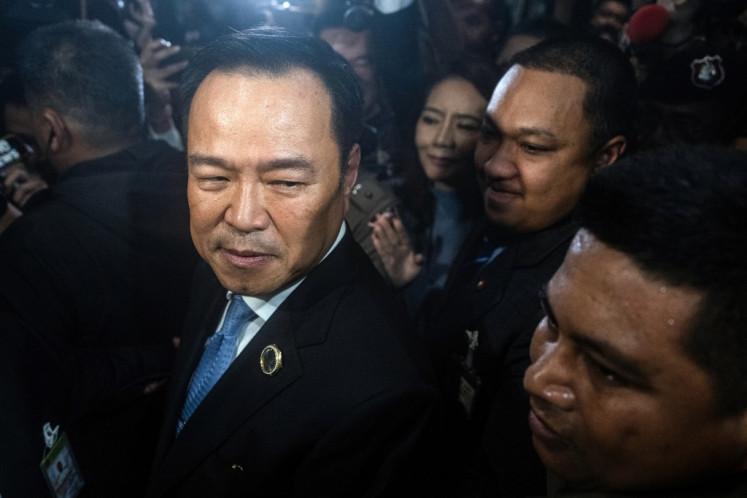Popular Reads
Top Results
Can't find what you're looking for?
View all search resultsPopular Reads
Top Results
Can't find what you're looking for?
View all search resultsGovt to begin tax office restructuring in Q4
The government will carry out a planned reform of the tax office in the fourth quarter of this year as part of an internal initiative to improve the performance of the taxation system and increase tax revenue, says a minister
Change text size
Gift Premium Articles
to Anyone
T
he government will carry out a planned reform of the tax office in the fourth quarter of this year as part of an internal initiative to improve the performance of the taxation system and increase tax revenue, says a minister.
Finance Minister Agus Martowardojo told journalists on Tuesday that the Directorate General of Taxation would be divided into two separate units responsible for developing tax policies and holding administrative functions.
He said the planned separation of policy making and administrative functions was one of the initiatives to reduce corruption within the tax office.
“There will be no more conflicts of interest,” he said.
Separately, Director General of Taxation Muhammad Tjiptardjo said the Fiscal Policy Office at the Finance Ministry would act as policy maker, and his directorate would remain the executor for administrative functions.
The tax office, he said, would strengthen internal supervision and develop new units both to deal with tax disputes and to settle tax objections independently.
“We are still discussing it with the Administrative Reforms Ministry,” he said, adding that all staffing affairs would technically remain his directorate’s responsibility.
Agus said all tax policies should be composed by an independent body to avoid conflicts of interest in their implementation.
“Those policies should be consistent and effective,” he said.
A separation between policy making and administrative functions, he said, would prevent any law infringement.
Agus said the government would not need approval from the House of Representatives in carrying out the tax office restructuring. “It’s within my authority,” he stressed.
As a result of the restructuring, he said, the government would increase its efforts to cope with tax law violations, including transfer pricing practices.
In a previous statement, the Finance Minister said transfer pricing practices had caused potential state losses of Rp 1,000 trillion (US$111 billion) since 1998.
“We have seen great business potential in Indonesia. However, this potential is not reflected by tax revenue as a result of, among other things, transfer pricing practices. We are planning to reorder our regulation on transfer pricing because it has great potential,” he said.
The proposed 2011 state budget says the government expects to receive Rp 839.5 trillion in tax revenue, or about 12 percent of the country’s GDP, which is estimated to reach Rp 7,000 trillion ($777 billion), next year.
To obtain higher tax revenue, Agus said, the government would put more focus on exploring new potential sources of tax revenue.
“We will continue our bureaucratic reforms, improve regulations and increase tax potentials,” he said, adding that the government provided tax incentives to attract better tax compliances. (ebf)










